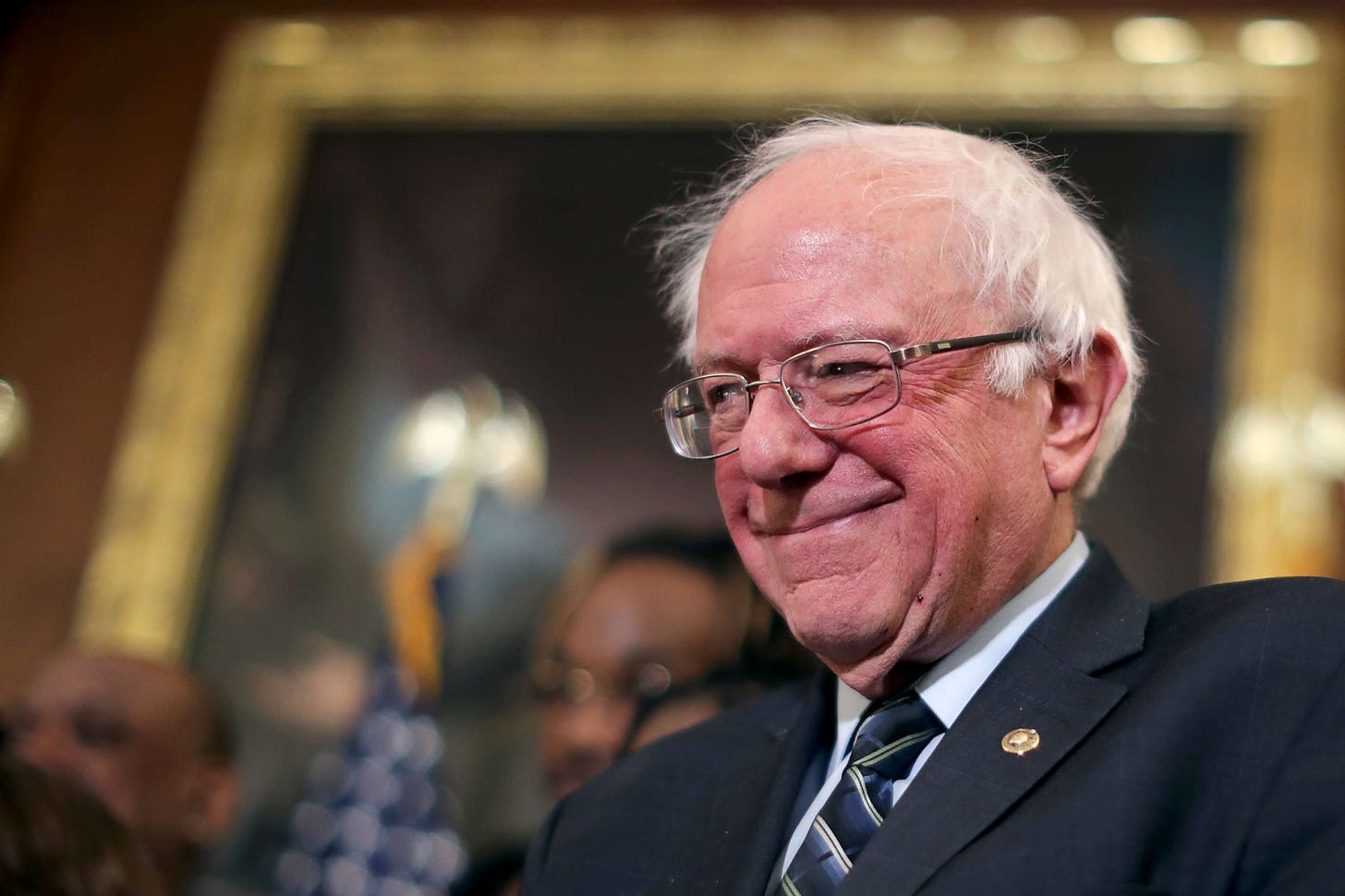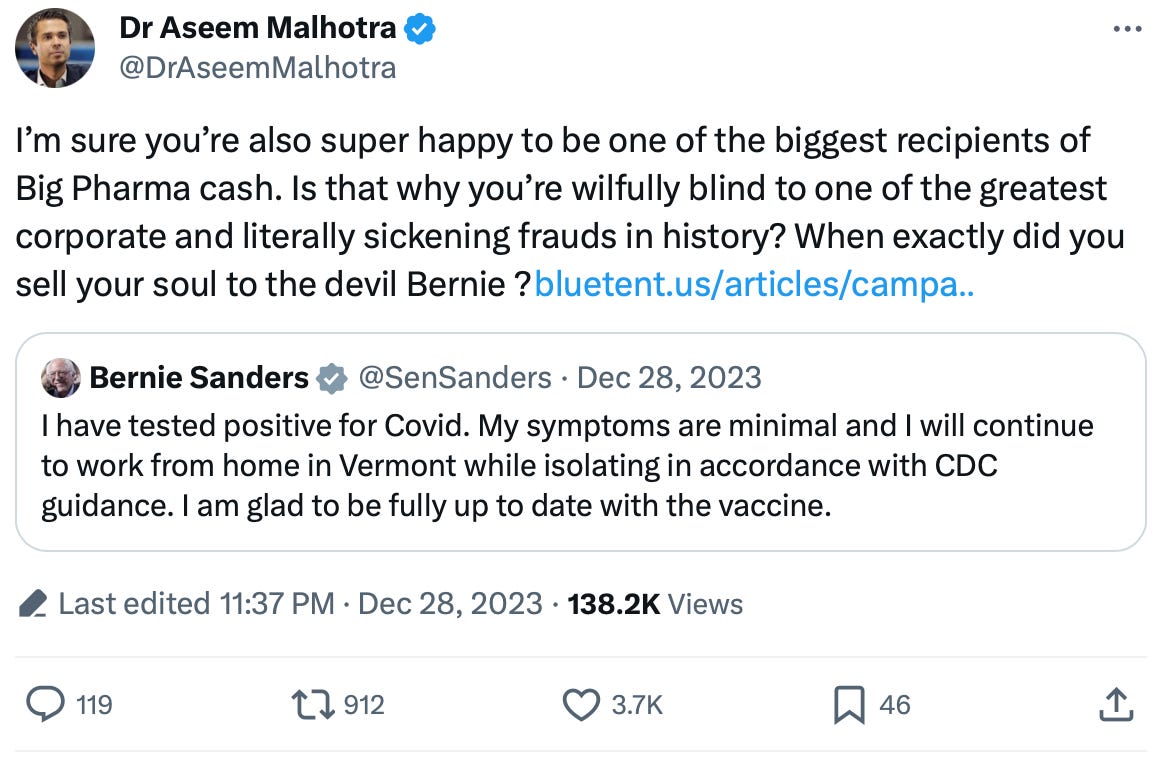Senator Bernie Sanders recently tested positive for COVID and shared the news with a statement on X (formerly Twitter) that has been echoed almost verbatim by nearly every public figure at some point in the past few years.
“I have tested positive for Covid. My symptoms are minimal and I will continue to work from home in Vermont while isolating in accordance with CDC guidance. I am glad to be fully up to date with the vaccine.”
While isolating still seemed important in March 2020 when COVID’s spread was a mystery, and vaccines may have seemed helpful when Americans were told that they stop transmission of the virus, why do public figures still feel the need to announce these outdated measures today? COVID is now like any other virus that spreads throughout the population and has vaccines available for those who wish to take them. Public figures almost never make dramatic announcements about “minimal symptoms” of other illnesses, nor do they typically make a point of talking about isolating and following CDC guidance or their personal vaccine history if they do fall ill. So why are Sanders and so many others still doing so with COVID?
The answer, as usual, probably involves money. Despite branding himself as someone who fights against corrupt corporate interests, and even specifically calling out Big Pharma, Sanders is actually a major recipient of the industry’s funds.
In fact, Sanders was the third highest recipient of Big Pharma money among politicians in the 2020 election cycle (when he ran for president), and the second highest recipient of the industry’s funds in the 2016 cycle (when he also ran for president and introduced himself to the American public as a warrior against such corruption).
The connections between the senator and the pharmaceutical industry can also be explained by Sanders’s committee leadership positions in Washington. Before running for president the first time, he served as the head of the Senate Veterans’ Affairs Committee; this position is closely tied to Big Pharma due to the abysmal state of health that too many veterans find themselves in, thus making them a pipeline for pharmaceutical drugs. More recently, Sanders became the Chair of the United States Senate Committee on Health, Education, Labor and Pensions – another position that has strong ties to healthcare and pharmaceutical industry interests.
These facts are not to discredit Sanders altogether. But it is relevant in the current political climate that even one of the biggest champions of fighting corporate abuse is in fact benefiting enormously from the industry’s money to hold and keep his elected position.
Sanders in fact addressed the issue in 2019 while running for president a second time, claiming that he would refuse and/or return any donations from pharmaceutical companies and their staff. Nevertheless, Open Secrets found that he received $1.4 million from the industry during the 2020 election cycle (for context, President Joe Biden received $9 million).
Sanders is neither the most corrupt person in Washington, DC nor is he above scrutiny. Even politicians with the purest intentions (or at least those who claim them) are susceptible to corporate influence. Once their funding sources are investigated, it becomes no mystery why politicians and the media have been so captured by these conflicts of interest. Honest Media believes in holding our authorities accountable and prioritizing truth over convenient narratives.




